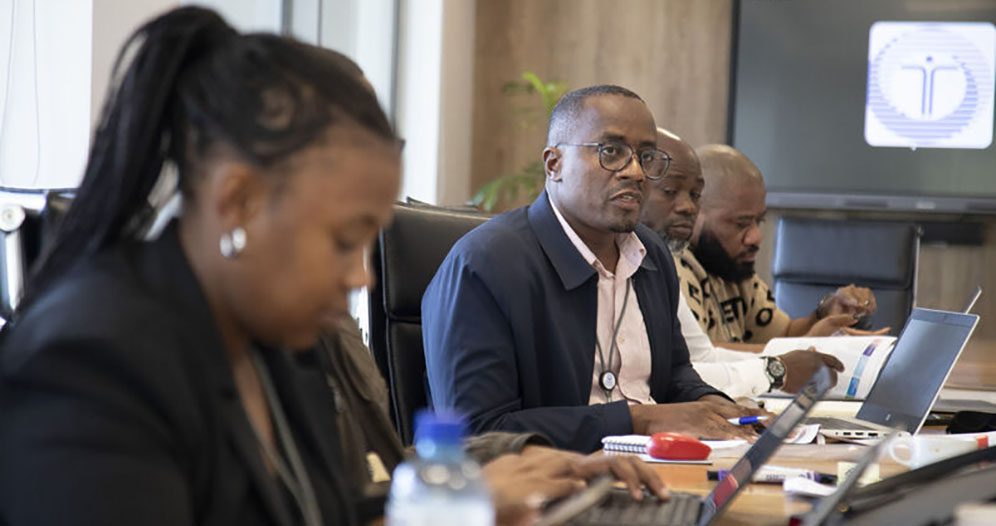SGCI News
The Centre for Science, Technology, and Innovation Indicators (CeSTII) recently hosted a high-impact workshop on strengthening the capacity of African Science Granting Councils in the use of evidence in policy…
The Centre for Science, Technology, and Innovation Indicators (CeSTII) recently hosted a high-impact workshop on strengthening the capacity of African Science Granting Councils in the use of evidence in policy and decision-making (Evi-Pol) under the Science Granting Councils Initiative.
The event was held in Cape Town, South Africa. It gathered senior policymakers, data specialists, and council representatives to discuss how to enhance the role of science, technology, and innovation (STI) data in policymaking.
Under the theme: “STI Data for Policy -Strengthening Data Governance’, the workshop provided a dynamic platform for knowledge exchange, capacity building, and strategic discussions aimed at improving how STI data is used to address Africa’s pressing development challenges.

One of the key takeaways was the need for a stronger alignment between data governance structures and national and regional frameworks.
Participants emphasised that harmonising data management practices across the continent would lead to more effective and consistent decision-making.
Discussions also focused on enhancing data governance maturity, with councils encouraged to use assessment tools to identify weaknesses, set priorities for improvement, and foster a culture of continuous development.
Another critical area of focus was the strategic communication of STI data.
Delegates explored ways to present complex datasets in more accessible formats through plain language, thematic storytelling, and innovative tools such as animations.
They agreed that councils can better engage stakeholders and drive evidence-based policy decisions that will shape Africa’s future by improving how data insights are communicated.
The workshop underscored the importance of leveraging STI data as a powerful instrument for policy development, ensuring that scientific research and technological advancements contribute effectively to sustainable growth across the continent.
Related News
Voices of SGCI: Council leaders on the direction and ambition of SGCI 3
At the African Union’s Science, Technology and Innovation Week in Addis Ababa, earlier this month, leaders of science granting councils reflected on what SGCI Phase 3 represents for Africa’s science and innovation systems. From ownership and alignment to stewardship and sustainability, here are their voices…
Building Africa’s science future: inside the SGCI alliance
As Phase 3 of the Science Granting Councils Initiative launches on the margins of the African Union Summit in Addis Ababa last week, the SGCI Alliance Chair explains why this moment marks a decisive turning point for African science. Cephas Adjei Mensah describes what is…
Open call: Support for science granting councils in Sub-Saharan Africa
The International Development Research Centre (IDRC), through the Science Granting Councils Initiative (SGCI), has launched a call for proposals to support science granting councils in Sub-Saharan Africa in the establishment and operationalisation of the Capacity Strengthening Hub under Phase III of the SGCI-3. The Hub…
SGCI funded projects
Rwanda’s integrated approach to sustainable agriculture and nutrition
Project Titles & Institution Areas of Research Number of Projects being funded Project Duration Grant Amount In-Kind Distribution Council Collaboration with other councils





